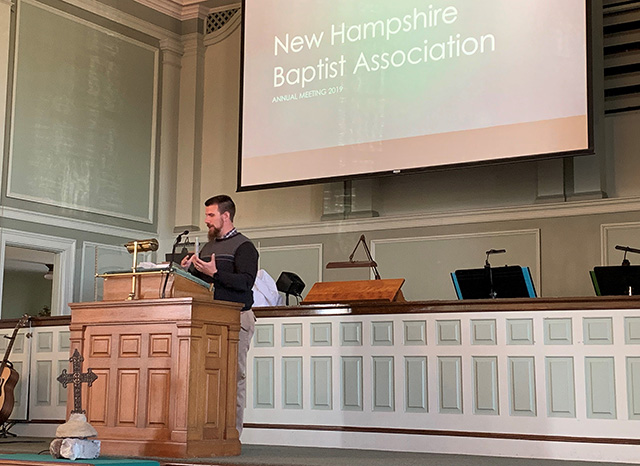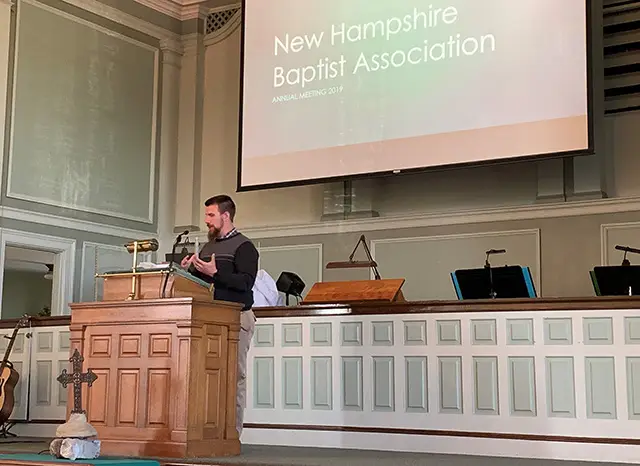
MANCHESTER, N.H. – Following three other local Baptist association mergers, the New Hampshire Baptist Association became the fourth to dissolve and join the Baptist Convention of New England during the association’s annual meeting on Oct. 19.
The merger is part of an overarching plan set in motion by the BCNE titled “Uniting New England Baptists.” The plan seeks to combine assets of smaller Baptist associations with the BCNE to provide more resources for local churches to create vibrant expressions of Baptist life.
Terry Dorsett, executive director of BCNE, said that since 2010 the smaller associations have struggled financially and organizationally to maintain effective ministry outreach. Without the financial means to do the actual work of ministry, Dorsett realized that a new plan was needed to keep Baptist life alive.
In this plan, the association itself dissolves, but all assets are re-invested and allocated back to the churches previously in the associations for ministry and mission.
“We found that not only are our associations struggling financially, but they [are] struggling from an administrative perspective,” Dorsett said, “Most of our [associational mission strategists] took the job because they wanted to serve and help pastors. Most of them were not necessarily wanting to run a small nonprofit, but that’s exactly what they ended up doing.”
Dorsett explained that the mergers allow the BCNE to take care of all the administrative paperwork and gives the associational mission strategists from each association the option to be hired by BCNE. In these new roles, they can focus on ministering directly to the pastors of churches in their region rather than running a small non-profit.
In the previous associational model, with so few churches connected, every financial up and down was felt deeply by each association member.
The BCNE also has a greater ability to absorb losses and still keep the work of the convention going, even when some churches experience financial difficulty.
Dorsett believes the mergers have been extremely successful in achieving greater ministry goals.
“This has solved what we wanted it to,” Dorsett noted. “The three that have already done it have been freed up from all kinds of administrative activities, and now they’re able to spend more time with pastors.”
Dorsett said mission strategists estimate they are able to spend up to three times more interaction with pastors and hardly any time in paperwork and administrative duties. As a result, the BCNE has also taken assets that associations were not using in full and turned them around for a greater missional output.
Those assets are now invested into endowment funds to be used specifically for particular areas of ministry for churches. In the earlier model, much of the funds went to covering administrative costs.
“Without question, they have more money than they’ve ever had,” Dorsett said. “It’s not just a shuffling of people around to try to pay the bills. It’s actually creating more resources to do more ministry and more mission than they’ve ever done in the past.”
The remaining three associations that have yet to merge with BCNE have an open-ended offer to do so if they choose. But no matter what they decide the BCNE has committed to helping them in the best way they can, Dorsett explained.
“We’re trying to be very careful not to impose or pressure anyone,” Dorsett said. “What we’re determined to protect is that there will be some boots on the ground in that field. We don’t need everyone in my office staring at each other. We need people out on the field. That’s what’s most important to us – that there’s some kind of local expression of Baptist life that’s vibrant and alive, even if the structure is different than the way it used to be. The ministry has to be there and that what we’re trying to pull off.”
Written by Baptist Press, the official news service of the Southern Baptist Convention.

